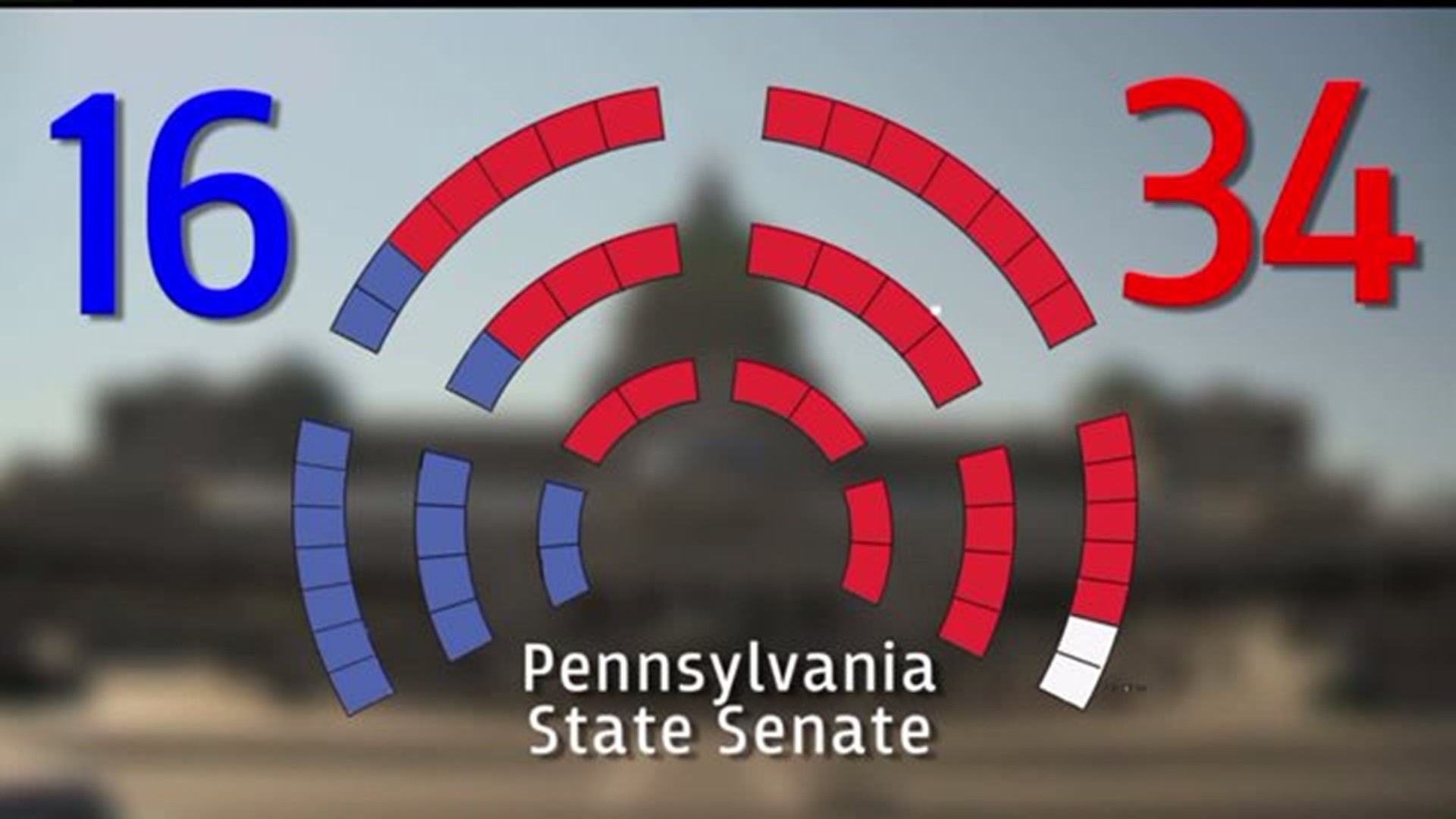HARRISBURG, Pa. -- Pennsylvania's state capitol shined bright Thursday under a clear blue sky, while Republicans were getting ready to paint the inside a sea of red.
Donald Trump's Presidential win Tuesday included becoming the first Republican to take Pennsylvania since 1988. In doing so, he propelled GOP candidates in the state general assembly down the ballot. House Republicans picked up three seats to increase their majority over Democrats to 122-81, as did Republicans in the Senate, which earned a veto-proof, two-thirds majority with its 34-16 edge.
"Now that we have 34 (seats), we have some members that wouldn't vote on an issue but we can still get (a bill) passed," said Sen. Scott Wagner (R-York).
Wagner is referring to the Republicans ability to now override any bill which Governor Tom Wolf decides to veto. As chairman of the Senate Republican Campaign Committee, he was involved in five senatorial elections, including all three which saw a flip from Democrat to Republican; John DiSanto winning in Dauphin and Perry Counties, Wayne Langerholc winning in Cambria County, and Dan Laughlin, who unseated Sean Wiley in Erie County.
If Senate Republicans stay in line to vote against the governor's decision, it would still need a two-thirds vote from the House. Not guaranteed, given House Republicans still need a dozen votes to veto-proof its caucus, but closer now than at any point in recent history.
"I think it sends the message we need to work together across the lines," said Jenn Kocher, spokesperson for Senate Majority Leader Jake Corman.
Kocher added that Democratic Governor Wolf had already began to show more signs of compromise in the second year of his term, after his first year was marred by a 9-month budget impasse.
Wolf said Thursday he was undeterred by the Republicans gains in the Senate, adding he doesn't see how much will change in how he governs due to the bipartisan success of legislation in education spending, liquor reform, and medical marijuana.
"I've been working with an overwhelming Republican Senate the last two years. An overwhelmingly Republican House last two years. We've gotten remarkable things done," Wolf said.
Meanwhile, Wagner thinks the change will be significant, specifically when it comes to next year's budget negotiations.
Many Republican legislators, like Wagner, say they are against any sort of tax increases to help fund budget items. He feels with a two-thirds majority in the Senate, Wolf will be unable to pass any tax-related spending plans and will be forced to find ways to save money instead.
"My message to Governor Wolf is you need to go back and do your job," Wagner said. "Instead of $2 Billion in tax increases, you have to find $2 Billion in savings."

